Photo: Drewby Perez
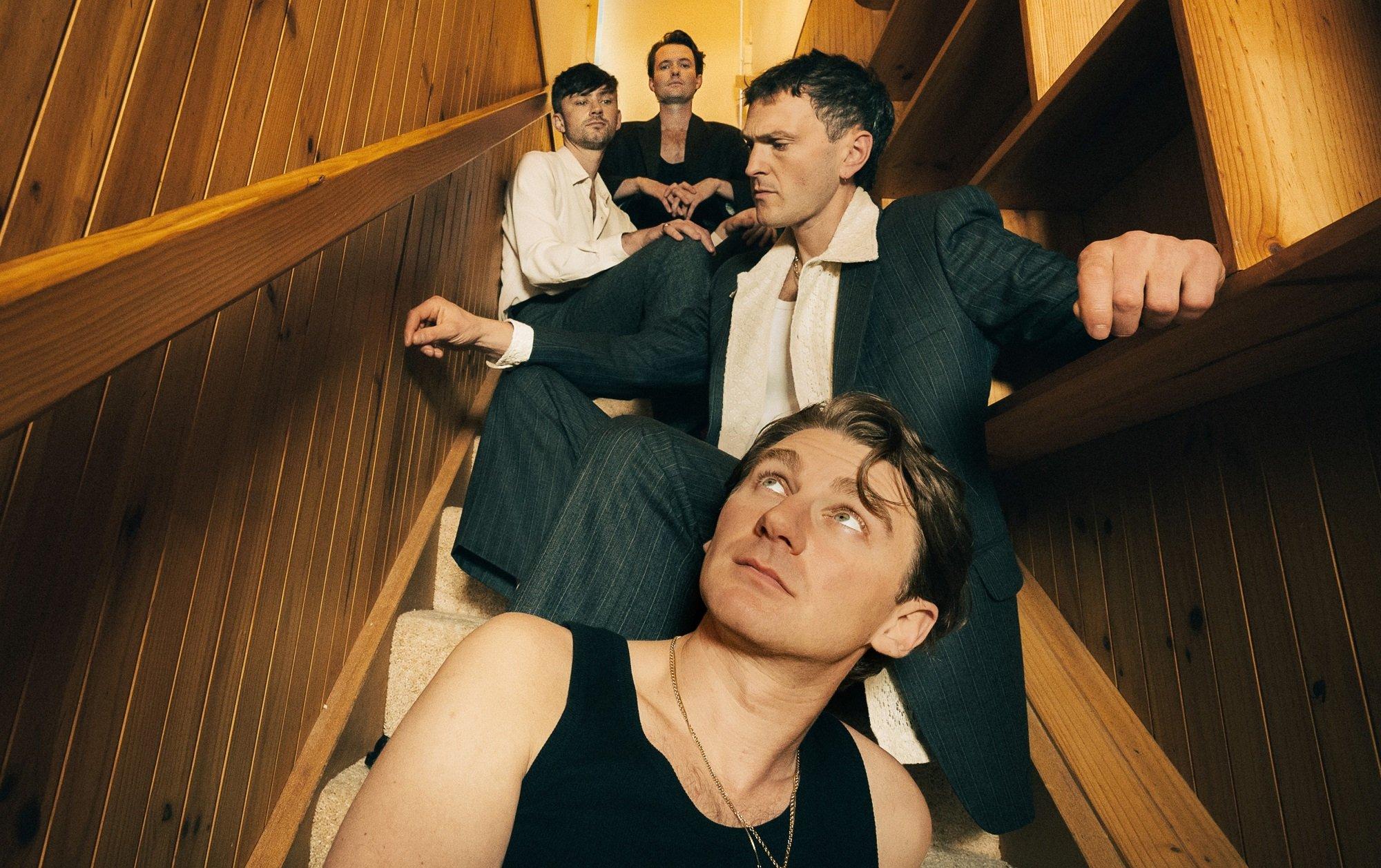
interview
Ladies And Gentlemen, Glass Animals Are Floating In Space
For Glass Animals, breaking through with their last album during the pandemic was an isolating experience. They brought those feelings to the fore with 'I Love You So F—ing Much,' where the Englishmen embrace a sort of majestic, celestial loneliness.
Remember the atmospheric river of 2024? Glass Animals' Dave Bayley thought he'd drown in it. He'd holed up in a cheap Airbnb to write his band's latest album, I Love You So F—ing Much — and soon realized why it was so cheap.
"When I got there, I realized why. It was one of those stilt houses, hanging off the edge of a cliff," Bayley tells GRAMMY.com. "There was s— flying down and trees coming out of the ground, flying down the mountain. I was like, I'm dead. This is it. This is the end."
Late at night, observing the bedlam of the natural world, Bayley didn't feel planted on terra firma at all; he felt as if he was floating in space. Which turned out to be the impetus for the English indie-psych-poppers' latest statement — space being a metaphor for disconnection and unmooring. (The album arrived July 19 via Republic; Bayley remains the sole producer.)
"I think I had a lot of imposter syndrome, and felt very disconnected from reality as well," Bayley says of the Covid era — which unfortunately dovetailed with the breakout success of their last album, Dreamland. But by some strange alchemy, Glass Animals spun that feeling into emotional warmth.
As you absorb songs like "Creatures in Heaven," "A Tear in Space (Airlock)" and "Lost in the Ocean," read on for an interview with Bailey about how this celestial, lonesome, yet oddly swaddling and comforting album came to be.
This interview has been edited for clarity.
How would you describe the four-year gap between Dreamland and I Love You So F—ing Much?
Like lifetimes, honestly. And at the same time, it sort of feels like yesterday as well.
It's very, very confusing — because we finished Dreamland, and then Covid hit. We were about to release it, and then we postponed, and postponed, and realized the pandemic is not going away. We promised people the album; we needed to release it to, like, survive. So, we released it thinking it would probably tank. And it did something absolutely amazing, unexpected.
Most people, when something like that happens, get to be out and experience it, and see it happening in the real world — playing live shows, and they feel part of it, and it's part of them. Whereas I was trapped in my bedroom in my underpants watching it all happen through social media and email updates.
You needed to make it to survive? Say more about that.
I mean, that was our livelihood. Somehow, this has become a profession — I have to pinch myself when I say that, it's the best thing ever.
But you can't just not release music. You have to keep writing and releasing music to maintain it as a profession. We were four years out from the record before that, at that point.
Odd question: if a music career was inaccessible to you, what would be your professional destiny, as it were?
I was trying to be a doctor before all of this happened. I was four years deep into medical school, actually. Then, a series of strange and terrible things happened in my life that made me like, I want to take a break from med school.
I was using music as a therapy, almost, to get over some of the things that had happened. I was making music to feel better, really, and connected somehow. Someone, somewhere, maybe, put it on SoundCloud.
**What was the thematic seed of I Love You So F—ing Much?**
I guess that sense of detachment was a big thing — because it not only went for the duration of the pandemic, but even after the pandemic, we were touring. And because there was no insurance for people touring against Covid, we still had to isolate and bubble within ourselves. It was going to extend us another year and a half, just being in this metal tube.
It was like, the biggest shows we ever had — they were amazing. We'd walk on stage, and for an hour and a half, be slammed in the face with emotion and energy. And then we'd walk offstage back to the bus, and we couldn't interact and be part of what was happening afterwards.
It just made us all feel even more surreal — it felt like a dream.
Talk about the sound you wanted to capture.
This one, I wanted to sound a specific way; I knew the equipment to get. I got about six synths and 20 pedals that fit the sound — a couple of guitars and a drum kit that fit the sound — and I just went for it. You could turn anywhere, and the sound would fit into the context of the record.
**If you think of Glass Animals' discography as stops on a journey via train, which stop is I Love You So F—ing Much?**
We've reached this retro-futuristic stuff, and I think it's definitely a progression from the last album.
I definitely set my own kind of '90s, '80s production — and now there's a bit of a vaporwave thing going on, but it was still pretty analog and nostalgic. It seems to be almost like the train went backwards.
Then, on the songwriting side, I was trying to really make sure the core of the sounds had [integrity]; they could basically be played with guitar and voice alone. I wanted the chords to tell the story of the song as well; we'd kind of done that in the past, but I'd never really focused on it like I did this time.
I wanted the chords to keep evolving through each section of the song — just twist the atmosphere of the song in each section.
Give me a line on I Love You So F—ing Much that you feel sums up what we're talking about.
"Show Pony" is the first song; everyone creates this idea of love, and what love should be, based on what they've seen and experienced growing up. Seeing their family, seeing their friends — you're walking down the street, and you see a couple arguing, and you form these [impressions of] love.
"Show Pony" is kind of the blueprint; it gives context for the rest of it. And then, the line that comes right after it: "What the hell is happening? What is this?" I like that as the real beginning of the record, after the table of contents — the first song.
Where do you think Glass Animals will go from here?
It's a good question, because I don't really think I'm there yet. I have a few ideas — but to be honest with you, I never end up going with any of the first ideas that I have.
Before this iteration of the album, I wrote a whole other space album that just felt really cold and hollow and empty — like a vacuum. It wasn't cool; it didn't have enough emotion, and it didn't feel soulful enough. I just binned it, and sacked off; it's in the trash.
It wasn't until I stumbled on this concept of juxtaposing these kinds of small, intimate moments with the size of space, that I put two and two together — and worked out how I could do a space album without it being f—ing s—.
Explore More Alternative & Indie Music
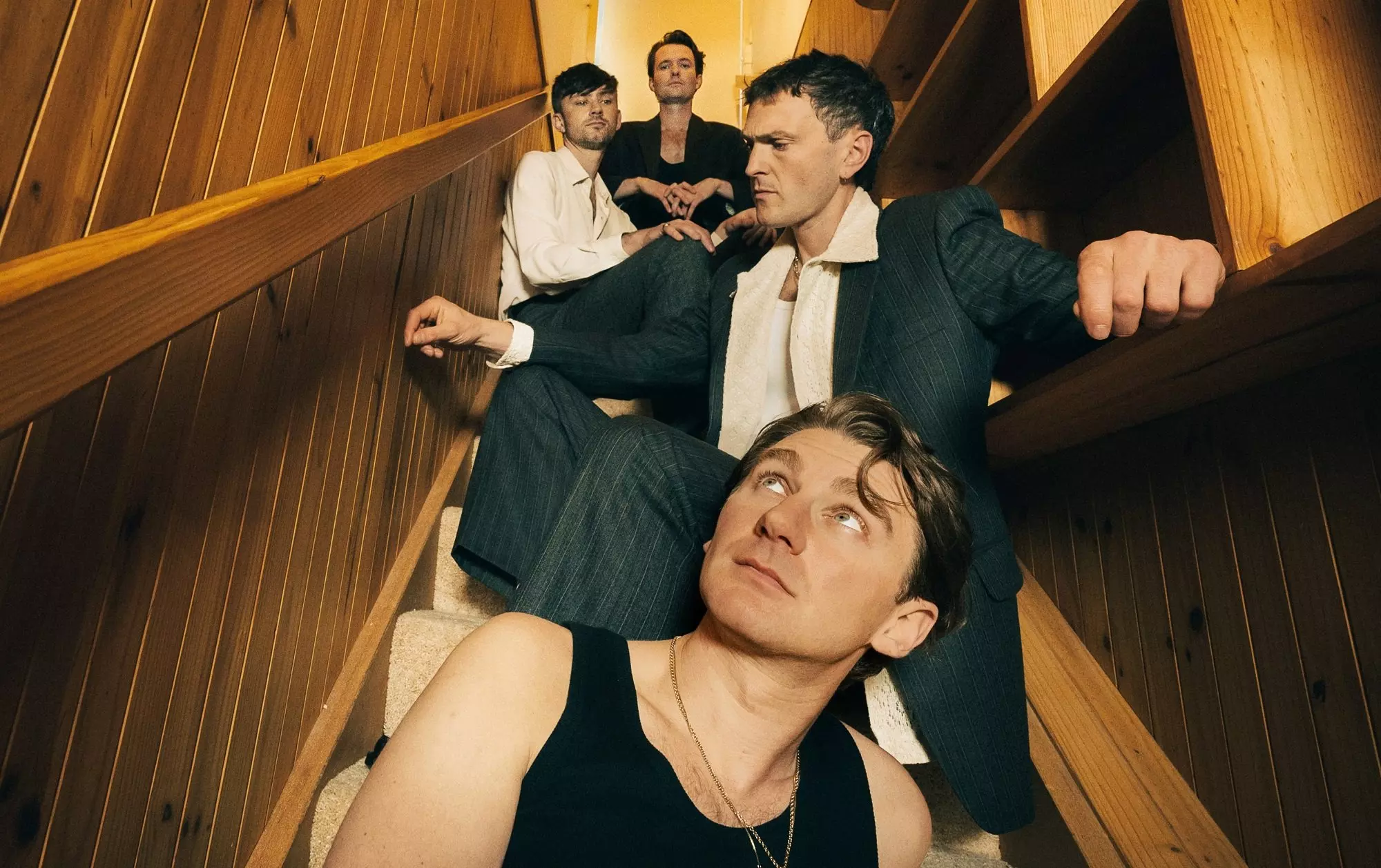
Ladies And Gentlemen, Glass Animals Are Floating In Space

Daniel Nunnelee's "Why Don’t You Just Come Over"
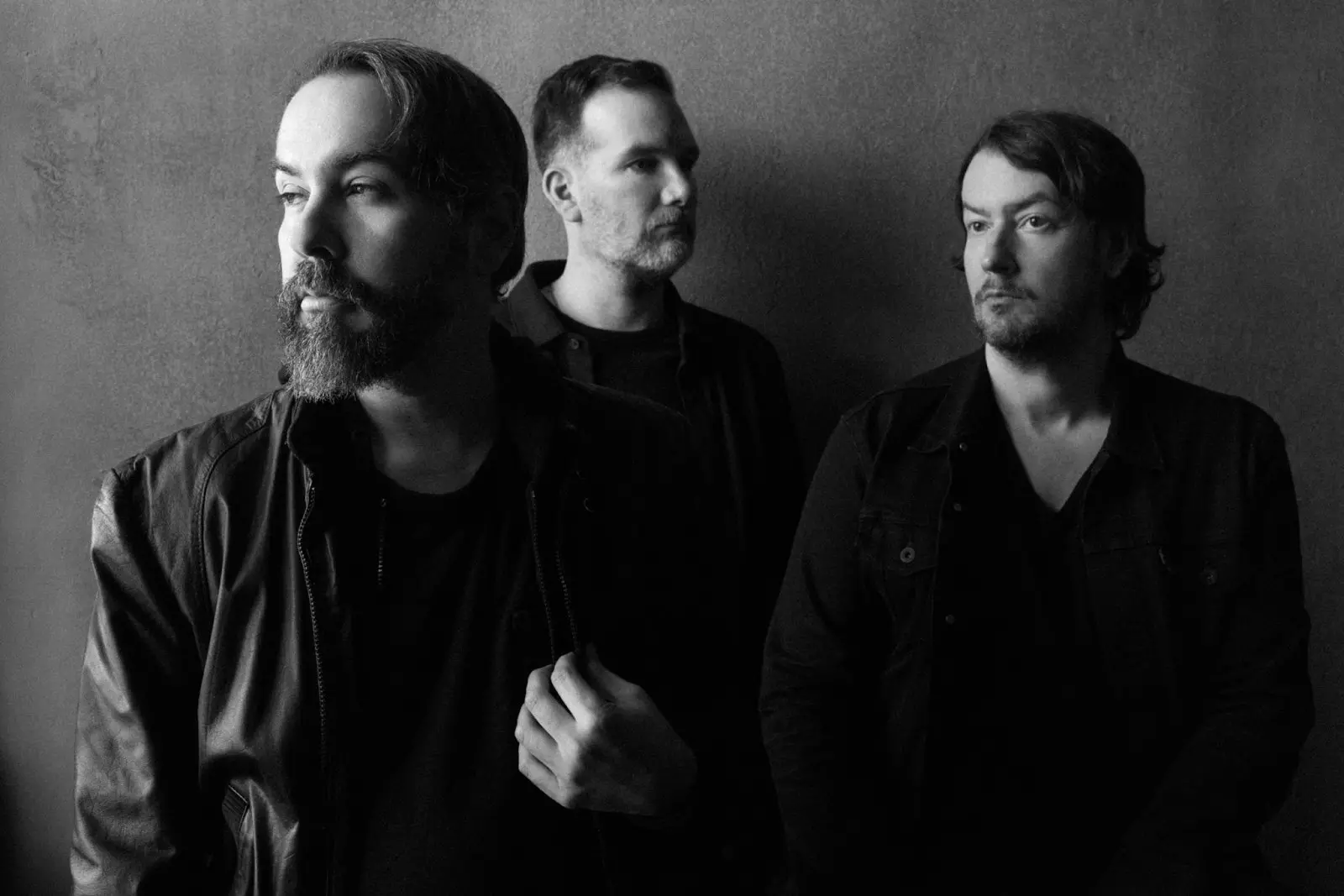
X's Mark The Spot: How Cigarettes After Sex Turn Difficult Memories Into Dreamy Nostalgia
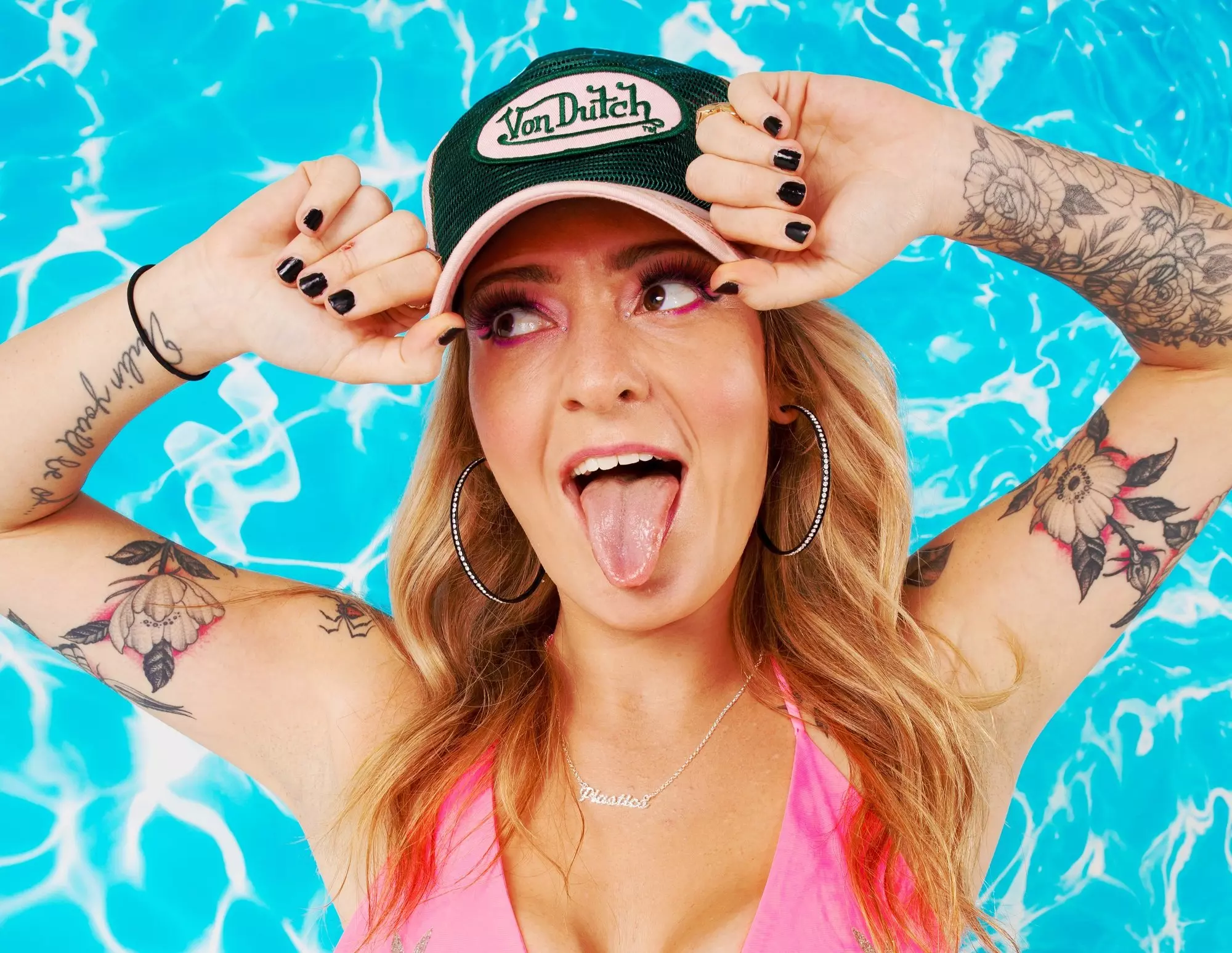
Meet Scene Queen, The "Chaotic Mess" Cleaning Up The Alternative Scene

Where St. Vincent Keeps Her GRAMMY Awards
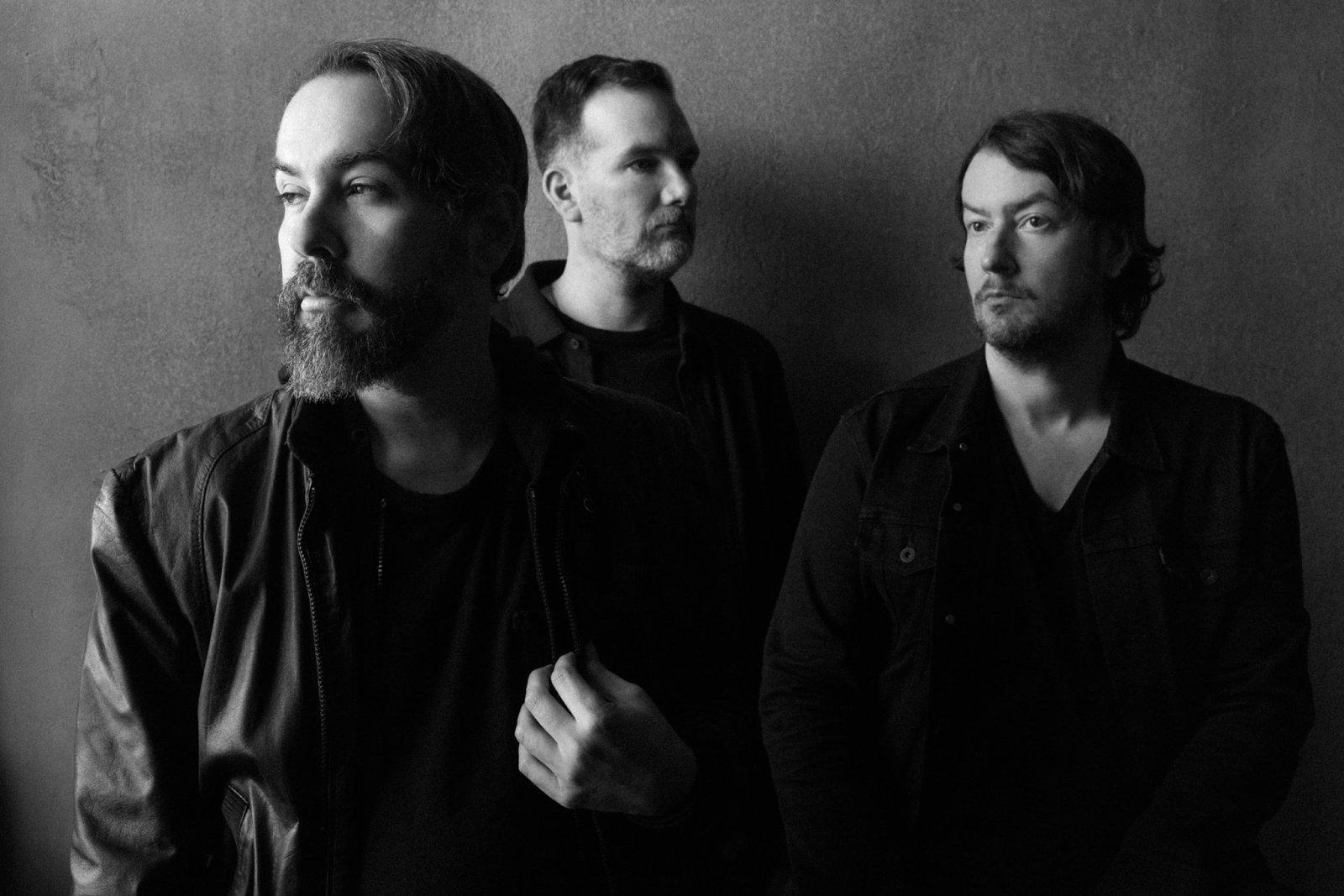
Photo: Ebru Yildiz
interview
X's Mark The Spot: How Cigarettes After Sex Turn Difficult Memories Into Dreamy Nostalgia
"We’re all in the same boat," Greg Gonzalez says of the band’s new album, ‘X’s.' The frontman speaks with GRAMMY.com about how channeling Madonna and Marvin Gaye helped him turn his memories of a relationship into sublime dream pop.
When Greg Gonzalez sat down to start writing the next Cigarettes After Sex album, the dream pop frontman relied equally on memories of heartbreak and the ballads of the Material Girl. "‘90s Madonna was a big influence on this record," he tells GRAMMY.com with a soft smile.
Though the end result won’t be mistaken for anything off of Ray of Light, that timeless, almost mystic cloud of emotionally resonant pop carries a distinct familiarity on Cigarettes After Sex's new album, X’s.
Cigarettes After Sex has championed that sweet and sour dreaminess since their 2017 debut. Two years after that self-titled record earned rave reviews and was certified gold, the El Paso, Texas-based outfit reached even deeper for Cry. And while those records cataloged Gonzalez's heartbreaks and intimacies in sensual detail, Gonzalez knew he could reach deeper on the band’s third LP: "These songs are just exactly as memory happened."
Arriving July 12, X’s fuses Cigarettes After Sex's dream pop strengths with ‘90s pop warmth and ‘70s dance floor glow. Always one to bring listeners into the moment, Gonzalez imbues the record with a lyrical specificity that gives the taste of pink lemonade and the tension of a deteriorating relationship equal weight. On X’s, the listener can feel the immediate joy and lingering pain in equal measure.
"This is specific to me and what I'm going through, but then I go out and talk to people on tour, and they’re like, 'Oh, yeah, I went through the exact same thing,'" Gonzalez says.
Leading up to the release of X’s, Gonzalez spoke with GRAMMY.com about the appeal of ‘90s Madonna, finding a way to dance through tears, and his potential future in film scoring.
Tell me about the production process for this record. You've always been able to build nostalgic landscapes, but this record feels smoother than before. Were there any new touchpoints you were working with?
That was the thing: trying to make the grooves tighter. It was coming from more of a ‘70s Marvin Gaye kind of place, trying to make it groove like a ‘70s dance floor.
Which is an especially interesting place to be writing from when dealing with that line between love and lust.
Yeah. The stuff we've done before was really based on the late ‘50s, early ‘60s slow dance music. But it was always supposed to be dance music; I always wanted Cigarettes to be music you could dance to, even if it was a slow dance.
When I think of pop music and I think of songs that really feel powerful, they usually make you want to groove in some way. I love a lot of music that doesn't do that: ambient music or classical or some jazz. But there's so much power to music that makes you want to move. And I found throughout the years that I could just never get enough of the music that makes you want to dance. So I thought, Okay, the music that I make should be really emotional. It should feel like music you could actually cry to, but in the end it should make you want to also move in that way.
It’s the physical necessity of the music, some forward motion to match the emotional journey. I’d imagine that is related in some sense to the fact that you’re writing in a somewhat autobiographical way. Is that a way of not getting stuck in the stories, in the feelings?
I'm writing it for myself. Of course, I can't help but picture the audience in some way. But it's never like I'm writing it for them.
There is an audience that I can visualize that would like the music. [Laughs]. There have been times where we’re recording and I close my eyes to visualize an arena or a stadium to picture the music in that setting. It’s a nice feeling. And that's just based on the music that I love that I thought had similarities.
Is there any particular music that you love that fills that feeling?
There's so much music that I was obsessed with, but with Cigarettes I narrowed it down. Since I was a kid, I did every kind of style I could do. I was in power pop bands, new wave, electro, metal, really experimental bands.
But when I finally sat down and said, "Let me make an identity for Cigarettes and make it special," I had to think about what my favorite music was and what music affected me the deepest. And it was stuff like "Blue Light" by Mazzy Star or "Harvest Moon" by Neil Young or "I Love How You Love Me" by the Paris Sisters. And I kind of put all that together and that became the sound of Cigarettes. And now I do that every time I make a record: I'll make a playlist of what I want it to feel like. I mentioned Marvin Gaye. I feel like ‘90s Madonna was a big influence on this record.
Madonna in the ‘90s? No one could touch that era. I don't know when the last time you listened to that music was, but…
No, I grew up with Madonna and I used to watch the "Like A Prayer" video on repeat. It blew me away. But then I came back and I got into the ‘90s stuff, like "Take A Bow" and that record Something To Remember. It's all of the slower tunes. And that was a big influence, especially songs like "Rain."
You clearly have a diverse musical appetite, but you’ve also highlighted people with such identifiable voices — something that I think is true for Cigarettes as well. Your vocals are so front and center in the identity of the project.
That's great. The singer pretty much makes the song for me, whatever I’m listening to. The entire spirit comes down to the vocals. I'll hear a song like "Take A Bow" and be like, This feels so special. What if I made something that felt like this? If I told someone this [record] was based on Marvin Gaye and ‘90s Madonna, I don’t know if they would think it really sounded like that. It's more just trying to capture the spirit of what those records feel like.
That's what's cool about it too: You can remember those songs that were filling the air back in the ‘90s and what those feelings were, what you were up to, and draw a line between that and whatever's happening now that I wrote about.
You don’t seem like the type of person to avoid negative feelings when you come up against them in that process either. The songs feel like you just embrace it, even if it's really painful.
I've always felt that's the best way for me to go through things, to face it head on. It's supposed to be painful. You have all these really great moments with somebody and all these great memories, and then when it ends, honestly, that's the way it goes, right? That's the trade off.
Yeah, but not everybody goes through a breakup and then makes an album about it. Isn’t that like returning to the scene of the crime? How does it feel to deal with it in that way?
That's funny. The thing was, I was writing a lot of this stuff while I was still in a relationship. It took so long to finish it.
Finish the album or finish the relationship? [Laughs.]
Actually both. But yeah, the record is mostly about that one relationship, but there are little diversions with some of the songs. A lot of the key images and songs are based on that romance and little memories that I took from it.
I like that I have all those moments kind of set in stone. It’s hard to listen to this record too because I'll just really see these moments, all these memories, and it can be a bit much to flash back to all that stuff and see it so vividly. But I love that I have it. Those memories meant so much and I’m glad that they're collected and displayed in this way.
And you were able to collect them when it was happening as opposed to having some time between, which could warp those memories. Writing and recording when you’re as raw as possible makes sense, so what you capture is really honest.
That's why I like to write these songs that are as honest as possible or as autobiographical as possible, with a lot of details. If I'm writing a song and someone heard it, they would know it was about them just based on all the imagery that's in that song. It's like a little letter to them. It could be like a secret little letter to someone.
That makes me think of "Holding You, Holding Me," which is so lovely and feels as immediate as anything you’ve done.
It was the pandemic, and then the other girlfriend I had at that time, we were living in downtown L.A. and just wanted to get out of the house and stay somewhere nicer for a while. And we went to this AirBnb that was in Beverly Hills with this beautiful backyard. The song was meant to be kind of Fleetwood Mac-ish, like "Gypsy" or "Sara", that nice ‘70s country pop feel.
Over the years I’ve noticed you frequently use taste as a sensory link in your songs, which really creates an evocative moment — I’m thinking about references to candy bars and lemonade on this album. What is it about that sense that sticks out to you?
If I'm going back to memory, then that's just what really happened. We went to the store to go buy wine and candy because that was the vibe that night. "Let’s watch movies and get red wine and some candy bars." And it was just a big memory that we walked outside and it started raining. I think too, what's nice about using objects is that it gives you so much mood in a song. You can tell what the feeling is of that moment when you put those things together.
And it can have an almost universal understanding. People will understand what it means to have a "candy bar night."
That's the craziest thing. It's almost like you're trained to write universally, meaning generically. Like, "Oh, this is a song that everyone can like and the lyrics can be really simple." But I’ve found that the songs that are really detailed and were more personal stories, a song like "K." from Cigarettes After Sex, those are the songs that everyone really loves, the ones that take up being really specific.
I suppose that's pop's way of being a doorway. When you're talking about your personal experiences, somebody is going to enter into it and feel like you're singing about theirs.
You realize that we're all in the same boat. This is specific to me and what I'm going through, but then I go out and talk to people on tour, and they’re like, "Oh, yeah, I went through the exact same thing." I feel very lucky that most people I talk to that love [our] music are always saying that. It’s so special.
It makes me trust my instincts. That's the hard thing when you're writing. You're wondering, Is this too much to disclose? Is this too much information? [Laughs.] That instinct is really important to know, to trust it. That's the tough one. That's what's also therapeutic about it too. You want to share things that feel really personal because then you can process them. You can really start to unpack what those moments meant and what they can mean going forward. It gives me more confidence when I hear that kind of stuff from people.
What then is it like when you sing it for a crowd? You’re performing, but you can’t fully separate the emotion that inspired that song.
That's tough because, ideally, if I did my job well enough writing the song, then it should be hard to sing live — especially if I really see those moments when I'm singing it. It could bring me to tears, honestly, because it should feel that intense. And it's even worse if I look in the crowd and someone's crying. I can't even look at them. And that happens very often. If I started crying, my voice will stop.
That brings a real cinematic feeling to your music too, which makes me think you’d be good at scoring a film. Is that something you’d tackle?
I'm definitely obsessed with film and have been since I was a kid. The idea that I keep saying — and I almost feel like I'm going to jinx it because I keep saying it too much — is that I really want to direct and write something. And I've written some ideas down for screenplays and things. It seems like it's hard to transition from musician to filmmaker and really make it stick. But that would be something I want to do in the next 10 years. I'm giving myself 10 years. [Laughs.]
Latest News & Exclusive Videos
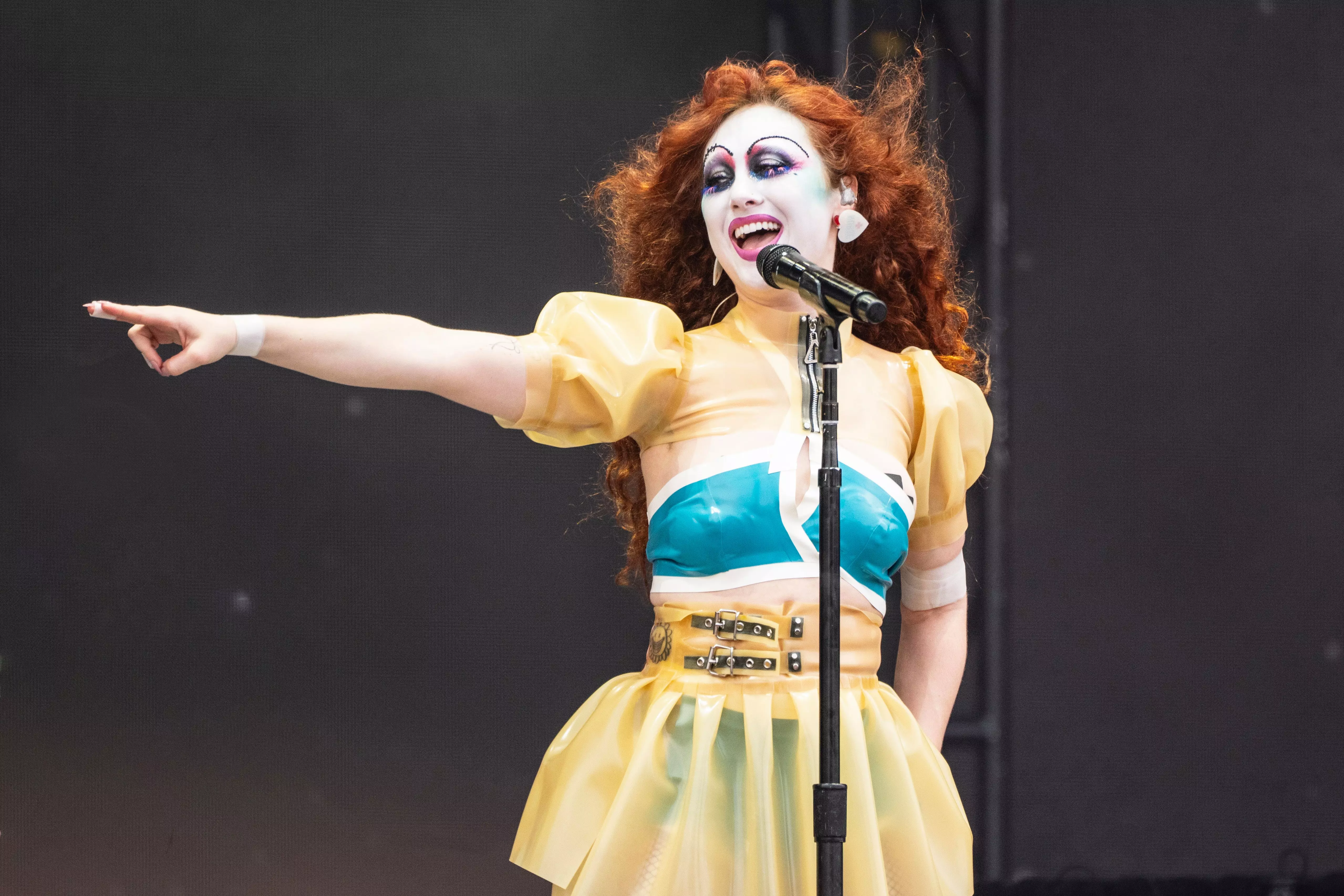
5 Artists Who Graduated From GRAMMY Camp: Chappell Roan, Maren Morris, Blu DeTiger & More
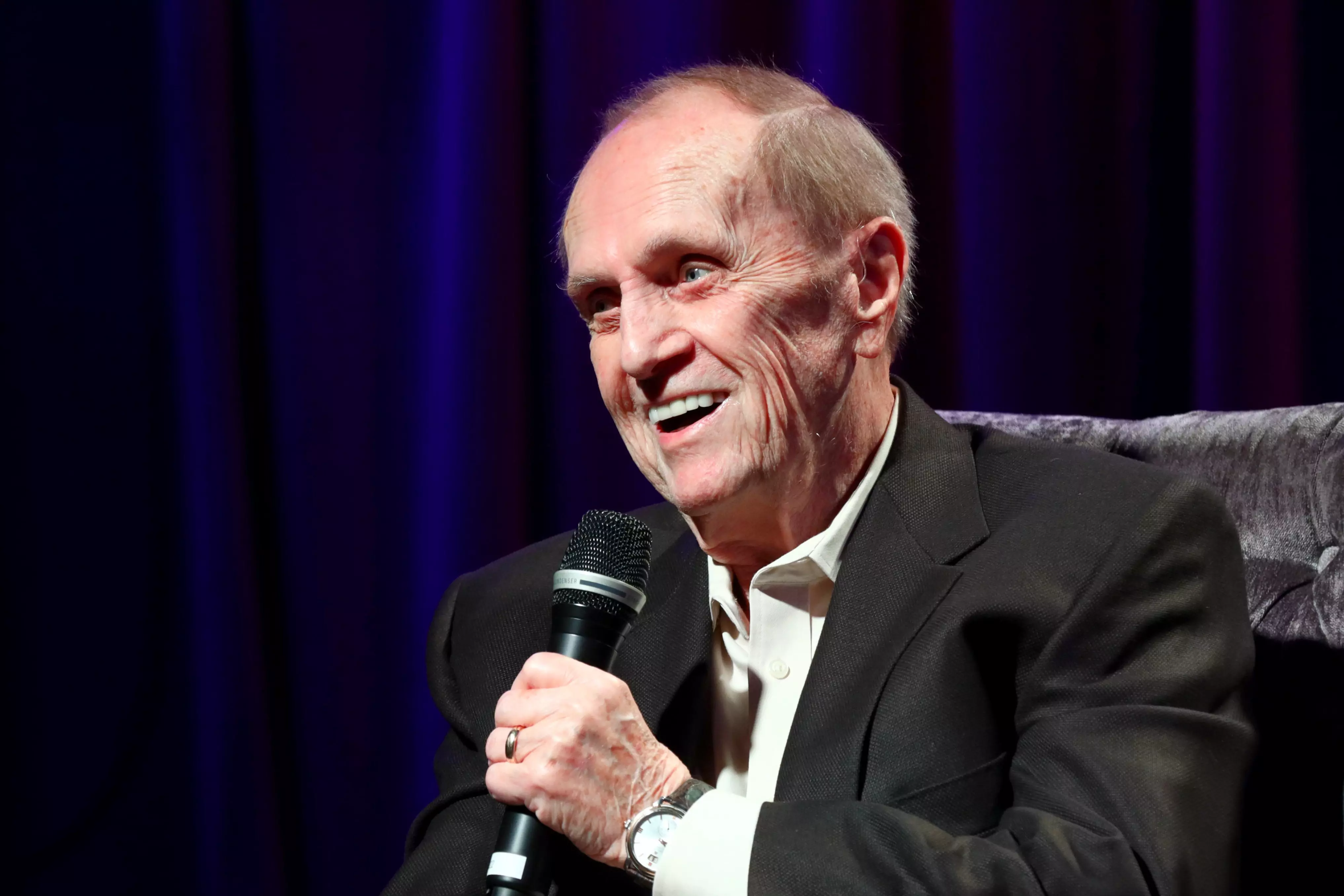
Remembering Bob Newhart, The Comic Who Made GRAMMY History With His Debut Album
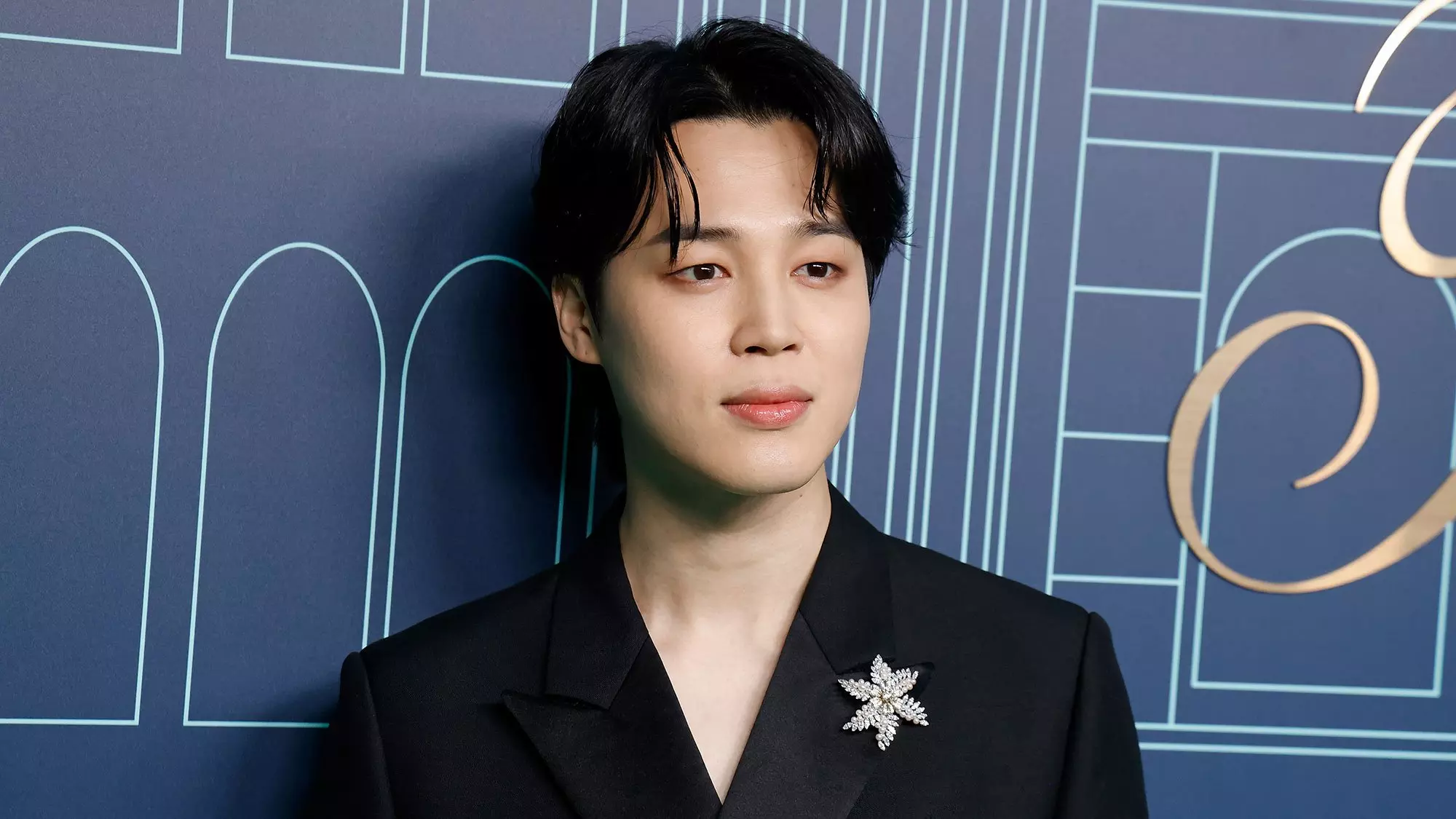
5 Takeaways from BTS Jimin's New Album, 'MUSE': A Bold Exploration Of Love And Inspiration

Ladies And Gentlemen, Glass Animals Are Floating In Space

Watch Stevie Wonder Win Album Of The Year
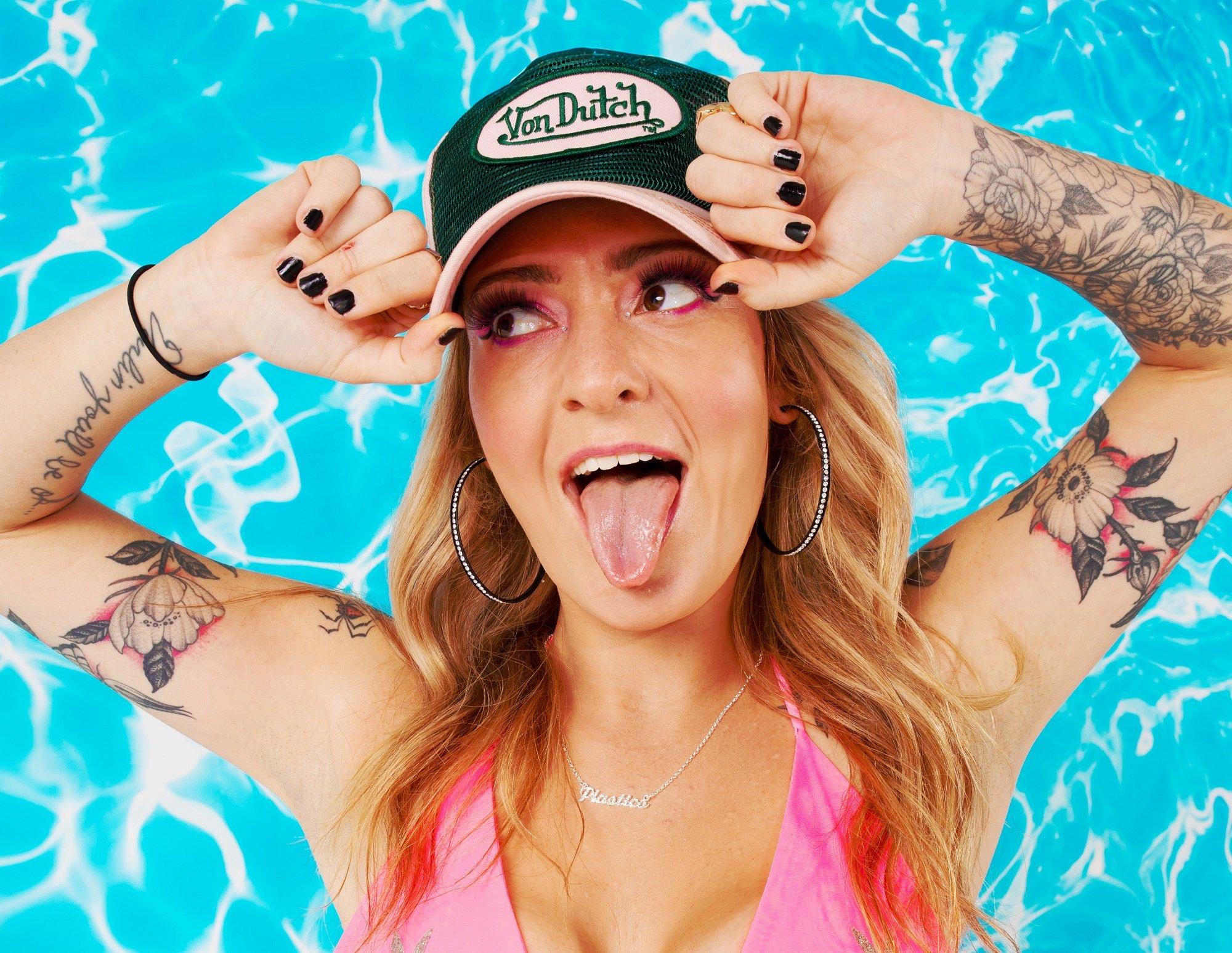
Photo: Danin Jacquay
interview
Meet Scene Queen, The "Chaotic Mess" Cleaning Up The Alternative Scene
"I'm cool taking sticks and stones thrown my way if it means that 10 years down the line there's gonna be another girl that tries to do what I do and gets zero flak for it," Scene Queen says of her take-no-prisoners album, 'Hot Singles In Your Area.'
"F*** the scene, I’m the queen!" Scene Queen announces early on her debut album, Hot Singles in Your Area. Delivered in a snarky sing-song, the exclamation serves as something of a mission statement for everything the singer has set out to accomplish with her winking metal-pop persona.
On Hot Singles (out June 28 via Hopeless Records), the artist calls out the bad behavior that’s run rampant in the alternative music scene for decades. From the insidious grooming of teen fans ("Headline spot goes to the abuser/ Half my idols are f—ing losers," she sings on blistering lead single "18+"), to the blatant discrimination experienced by female artists in the genre (opener "BDSM"), and date rape drugs and sexual assault ("Whips and Chains") — Scene Queen takes unflinching aim.
Born Hannah Collins, Scene Queen isn’t out to destroy the genre she grew up loving as a Warped Tour-obsessed teenager in suburban Ohio. Instead, she’s using her perspective as a queer female artist and knack for razor-sharp songwriting to make the scene safer, more accountable and, ultimately, more inclusive.
Featuring high-octane collaborations with the likes of The Ready Set ("POV"), WARGASM ("Girls Gone Wild") and 6arelyhuman ("Stuck"), Hot Singles in Your Area is also an unabashed pleasure ride that introduces listeners to Scene Queen’s unique brand of sexual freedom, self-love, queer pride and self-deprecating humor.
"My fans know that I'm playing into the joke of it a lot," Collins says from her home in L.A. "But a lot of people still don't understand it."
Ahead of her album release, Scene Queen opened up exclusively to GRAMMY.com about finding her voice in the metal space, the pop icons who inspired her persona (from Britney Spears to Paris Hilton, Dolly Parton, and Jessica Simpson), standing up to misogynists, homophobes and haters, and more.
How does it feel to be on the verge of finally releasing your debut album?
Really exciting! But also terrifying in a way. With [2022 EPs] Bimbocore Vol. 1 and Vol. 2, I feel like I told the story of, "Who is Scene Queen? What is this project?" Like, she's very loud and out there and opinionated, and in your face and whatever.
But this record touches on everything in my life that happened for me to become this version of myself — why I needed to become Scene Queen. I made a whole record about being independent and reclaiming my power and sticking up for myself and sticking up for people in the scene…In a weird way, I'm making jokes this entire album, but it’s a vulnerable album in the sense that I'm revealing a lot via the lens of humor.
How did the Scene Queen persona come about?
I grew up in the alternative space. Like, I went to a million Warped Tours and all of that stuff. I was at shows in Cleveland, like, every weekend during high school. I've been listening to bands like Hawthorne Heights and stuff since I was 8 or 9 years old. So when I was 18, I moved out to L.A. from Ohio, and that was around the time that all of these bands started dropping members left and right because they were finally getting called out for, like, predatory behavior or what have you — just being, generally, not great people.
Coming into adulthood, you start looking at things through a different lens, like, Oh, that was a weird interaction or Oh, I feel weird that they let me do that at 16 years old. It really felt like, as a woman, the scene wasn't a safe space for me anymore. Then suddenly, during COVID, the only thing I wanted to listen to was, like, super alternative music.
TikTok introduced me to a lot of bands like The Home Team, that were combining pop-punk with, like, R&B — I always loved that experimental stuff. And I was listening to a ton of BABYMETAL and WARGASM, experimental metal-pop stuff. But I told myself the only way I would come back into the alternative space was if I did it on the terms of what I wished I’d had in the scene growing up.
So now I operate my entire persona as this elevated version of myself because I feel like people need that. Scene Queen is like a superpower for me in a way — she helps in my day-to-day life as Hannah, too.
What makes the Y2K era such a key element of the Scene Queen aesthetic?
Growing up in that time, super hyper-feminine women were often vilified, especially in rock music. If you were super girly at a show, people would assume that you were there to sleep with the band. Like, you weren't as worthy of being there as a man. When I was in high school, I actively chose to dress in mostly all black because I just didn't think I would be taken seriously.
So I wanted to pull that whole era into it and just be like, I'm actively going against everything I grew up with and what the scene told me was acceptable. And now I'm gonna be the antithesis of what any of the people that were misogynistic — or also just underestimated me — would want from me. And now I make the choice every day to irritate those people. [Grins.]
Growing up, were there female artists you looked up to in the scene?
I just came off of a tour with PVRIS, and [Lynn Gunn] was one of the first queer people I ever knew of within the scene. Which is so crazy to think of back then, that I only had one example of that. She was just, like, openly queer and didn't feel the need to... I don't know, she didn't come out to anyone, she just always existed that way and people didn't criticize her for it. It was the first time that I saw that and was like, Oh, maybe I would be able to do that someday."
But behind the scenes, she was on the receiving end of so much misogyny, because men didn't think they could get something out of her, 'cause they knew that she was a lesbian and whatever. She was enduring 10 years of misogyny and homophobia so that someone like me could come around 10 years later and be this voice in the scene.
So it's cool that I'm getting recognition, but the only reason that I'm able to do this now is because so many women just took extreme hate and terrible things behind the scenes before me. And I still get massive flak for it now. The end goal of all of this, and I think if you ask any woman, they'll tell you the same thing: I'm cool taking sticks and stones thrown my way if it means that 10 years down the line there's gonna be another girl that tries to do what I do and gets zero flak for it. Someday I hope we get there.
What other female artists helped inspire your Scene Queen persona?
So there's two different versions of this answer. On the pop side, I'm so obsessed with 2000s pop princesses and also just pop icons in the sense of, like, that bimbo aesthetic. I allude a lot to Britney Spears in my music. Also Paris Hilton. Dolly Parton. Jessica Simpson. Women that, like, knew how they were perceived by the media and played into it, but were so the other way.
Like if you've ever seen the Paris Hilton documentary [2020’s This Is Paris], she talks about how she put on this voice and everything, because people were just gonna assume that she was dumb anyway. So she completely capitalized on that and was like, "That's fine, I'll take your money and make my career successful. If you're already gonna assume negatively about me, then that's my superpower." Those people really inspired me, and that's very much the aesthetic drive behind my project.
In the alternative space, there are bands that I grew up with that I was also super into like We Are the In Crowd, VersaEmerge, In This Moment. So there's a lot of women that have helped create the Scene Queen project without knowing.
How much of the album is autobiographical?
It tells the whole tale of coming [to L.A.] and getting my foot in the door, the music industry experience of it all. No one talks about having this second coming of age in your twenties and thirties where you're actually figuring out who you are. I was one of those people that didn't come out, or didn't even fully process that I was queer, until I was in my twenties.
I was just so scared about it 'cause I grew up in a small conservative town. And then I came here and was just like, I need to work in music so bad that I don't even want to think about dating! [Eventually,] I realized I spent all this time trying to be independent and confident. And now I'm going into the dating world.
Some days you feel like an absolute sex god and the next morning you wake up, and you're on a first date and you have word vomit, and you don't know how to interact with people. So you get a song like "Oral Fixation" where it's just about having absolutely no game when you're dating for the first time. The record really tells the whole story of becoming all of this chaotic mess that is Scene Queen, which is both making fun of itself and hypersexual, and this, and this, and this.
Read more: 15 LGBTQIA+ Artists Performing At 2024 Summer Festivals
You play around so much on the album by mixing really serious topics with a sense of humor. How do you balance that in your songwriting?
I always come into a session with the baseline idea of subject matter and title. This album was a lot easier because it's a concept album in a sense, and I thought of all these [explicit] categories that I could've used… Take "Oral Fixation," for example. That was the first song I wrote for Hot Singles other than the title track. I realized I could write it about word vomit and, like, choking on something, instead. Or, like, the last song of the record is called "Climax" because it's the high point of the record, but it’s actually a really wholesome song.
And then "BDSM" means "Beat Down Slut Metal," but also "Big Dumb Stupid Men." I decided to make that the opening track because I was getting all of these comments that were like, "Scene Queen's a man hater!" for criticizing anything men do in any capacity. This was after my song "Pink Push-Up Bra," which is so specifically about sexual assault that I was like, "OK, of I can't even criticize people that sexually assault women as being bad, then sure, I’ll put it as the first track."
What was your motivation behind the hypersexualization in some of the songs?
I think people don't understand that you can be fully confident with yourself and your sexuality and think you're a good person, and worthy of love and worthy of sexual pleasure, while also not taking yourself too seriously. You can still make fun of yourself but also know your self-worth.
As much as I make these self-deprecating jokes, at the end of the day I refuse to be treated poorly. And I think that comes across in all the songs about sexual pleasure and sexuality. You learn at a young age — especially if you've been closeted for a long time — [the feeling of] I robbed myself of so much joy for so long. I deserve to get off for something. [Laughs.] I deserve a little bit of joy in my life. So I tried to write that.
"M.I.L.F" is obviously a raunchy, very sexual song. But that song came from spending a summer in Nashville, and I was always just like, "Tennessee: conservative." But there's this huge population of people who have stayed or moved to Tennessee; who grew up listening to country music but then shied away from it because their beliefs no longer resonated with the [genre's] subject matter. So I wanted to have a song for those people who are like, "Yeah, I still wanna go chug a beer and jump off a boat on a lake, but also, I am pro-gay marriage and whatever."
I wrote a song that I knew the people who were country elitists, that would never like me anyway, would be horrified by. And the way I did that was via very explicit lyrics and the most sexual content ever. But it ends up being one of the rowdiest songs in my live set, because so many people truly do want to just put a hat on and do a line dance. They just don't want to be judged when they do it, you know?
So it ended up being this weird statement that I didn't necessarily fully think it would be, but it's one of my favorite parts of my set now. Having that little hoedown for the hoes every week is really fun for me.
I actually just attended this charity event at Stonewall for this organization called Inclusion Tennessee, where I learned that Nashville is the largest city in the country without its own LGBTQ center. Queer people in those types of communities are still fighting constantly for resources and inclusion and acceptance.
It is so wild, too, 'cause there's this discussion around Chappell Roan making that statement at Gov Ball about not performing at the White House, and then going to play in Charlotte, where North Carolina obviously has conservative views as a whole. There are so many pockets of queer communities that are actively seeking out someone that will advocate for them and give them a voice, and I think it is so cool. It's such a privilege to get to be one of those people now.
This summer, you’ll be co-headlining idobi Radio’s Summer School Tour. What are you looking forward to about that?
That tour, in and of itself, is so cool and exciting for me. Because one, it has the rotating co-headliners, which emphasizes the importance of music discovery. You have to show up at the beginning of the day to see who you want to see. Anyone that grew up with Warped Tour obviously is going to be stoked to have something like that.
But also, there are so many queer people and women and people of color on that tour. The lineup is so diverse and I feel like if that tour had existed in the 2010s and 2000s and ‘90s even, that never would've happened. So the fact that the initial launch looks that way makes me so hopeful for the future of it.
OK, last two questions: What’s the most memorable Warped Tour set you ever saw? And what are your top 3 "Bimbo" pop songs?
Most memorable Warped Tour set: I'd probably say the first time I ever crowd-surfed. I think I was, like, 13, it was to the band Sleeping with Sirens, and that was just the pinnacle of, like, "I love alternative music!"
Then as far as the "Bimbo" pop songs, hmm...I have to say "I’m a Slave 4 U" just because that Britney Spears music video is so iconic — the dancing, all of it. We gotta do a Paris Hilton song. It was hard to be in a mall food court in the late 2000s and not be humming "Stars Are Blind." Yeah, soundtrack to my youth, for sure. And then "9 to 5" by Dolly Parton even though that’s country, not pop. Like, how do you not want to trot out there to [sings], "Hopped out of bed and I stumbled to the kitchen..."? It just gets the bimbo vibes going.
Listen To GRAMMY.com's 2024 Pride Month Playlist Of Rising LGBTQIA+ Artists
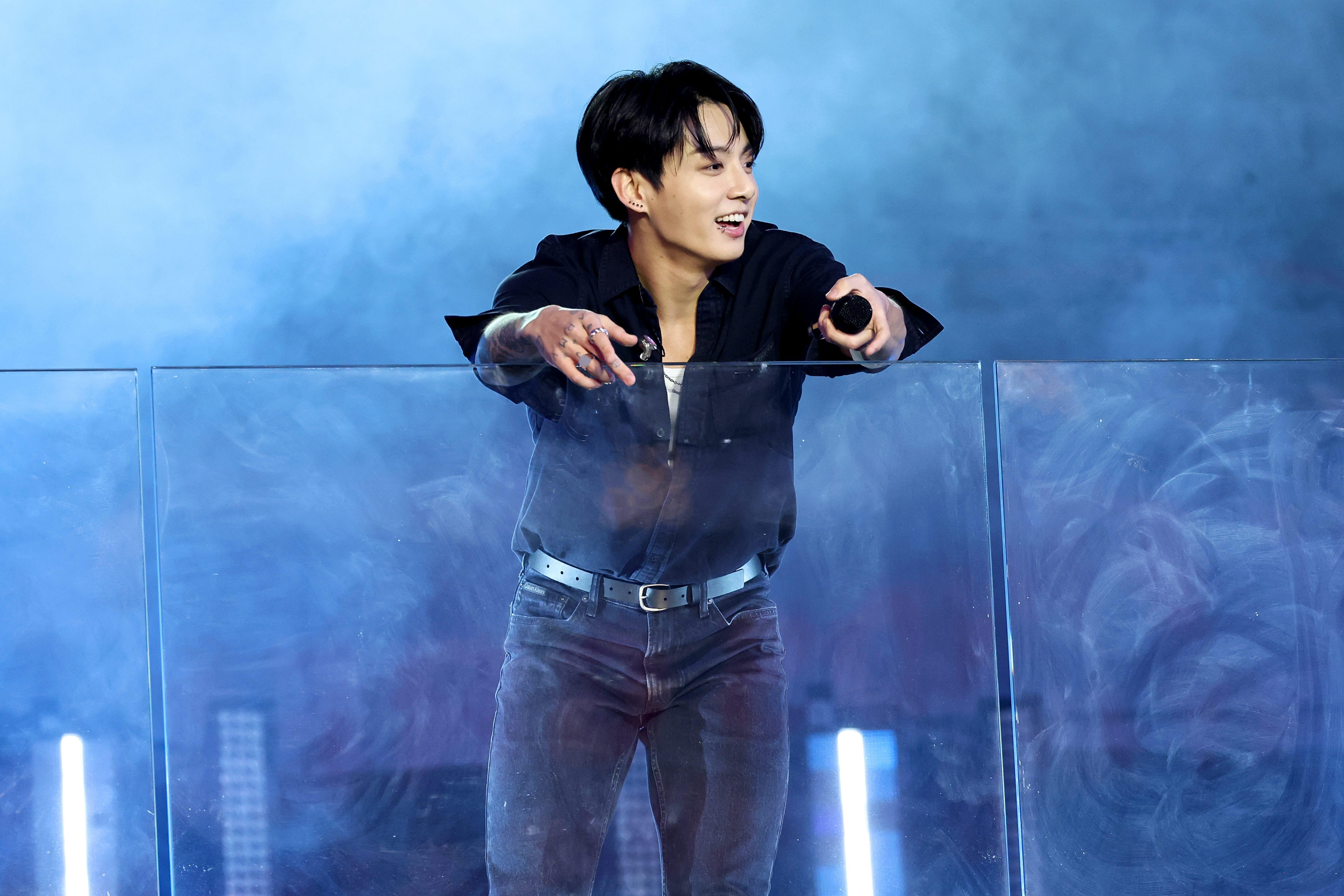
Photo: Jamie McCarthy/Getty Images for TSX Entertainment
list
New Music Friday: Listen To Songs & Albums From Jungkook, Meghan Trainor, Peggy Gou, & More
Bask in the pre-summer magic with fresh musical offerings from acts as diverse as Ski Mask the Slump God, Kaytranada, Thomas Rhett, and more.
We're still a couple of weeks away from the summer solstice, but the smell of cookouts and chlorine is already in the air. As parts of the country experience summer weather, there's plenty of musical delights ready to soundtrack the start of summer.
From pop to alt-country to rap, this New Music Friday sprouted sounds for listeners of all persuasions. Here's a cross-section of today's songs and albums to check out, from Peggy Gou's debut album to the latest single from Jungkook.
Meghan Trainor — 'Timeless'
Just a few weeks before Meghan Trainor's breakthrough smash, "All About That Bass," turns 10, the GRAMMY winner rings in the anniversary in major fashion: a brand new album.
Trainor's sixth LP, Timeless, an irresistible split difference between bubblegum pop and woo-wop. Back in March, she released the lead single "Been Like This" with T-Pain; the "Buy U a Drank" star also appears on "Love on Hold."
"I cannot believe it has been 10 years since this all started. I have never been more grateful for this life that my incredible Megatronz have gifted me with," Trainor said in a statement — "Megatronz" referring to her rabid fanbase. "This new album and tour are all for them and my beautiful family."
Peggy Gou — 'I Hear You'
I Hear You might be South Korean DJ and singer Peggy Gou's debut album, but she declares it to be much more than that.
"It embodies countless hours of dedication in my journey to create something timeless, and is a testament to the power of listening, to ourselves and to each other," Gou said in a statement.
And of the video to "1+1=11," in all of its shadowplay: "By bringing together dance — embodied exploration of space — with colorful shadows, lights, and mirrors, I was able to bring some of the key interests that have long shaped my art into an entirely new context."
If all this resonates with you, I Hear You is — well, a must-hear.
Listen: Leap Into AAPI Month 2024 With A Playlist Featuring Laufey, Diljit Dosanjh, & Peggy Gou
Orville Peck, Diplo & Kylie Minogue — "Midnight Ride"
As Pride Month kicked off, Kylie Minogue brought out two very special guests at Outloud Fest at West Hollywood Pride: her newest collaborators, Orville Peck and Diplo. The trio debuted the slinky, sparkling "Midnight Ride," a winning trifecta of their diverse talent pools.
Just a few days later, the studio version has arrived. In its full-fledged wonder, the track is just as much of a ride on record as it was on stage.
The single is the latest offering from Peck's forthcoming duets album, Stampede; though the full album's release date has yet to be announced, the alt-country star teased the exciting collabs to come with the seven-song Stampede, Vol. 1 on May 10, which featured Elton John and Bernie Taupin, Nathaniel Rateliff and more.
On July 19, English indie favorites Glass Animals will declare I Love You So F***ing Much with their fourth album. They previously released the advance single "Creatures in Heaven." "A Tear in Space (Airlock)" arrives from smack in the middle of the forthcoming album.
A celestial, pulsing track replete with delicious production details, "A Tear in Space (Airlock)" marks another evolutionary step for the Oxford-rooted group. Their smash "Heat Waves" might be in the rearview, but they still know how to craft a song for just that.
Jungkook — "Never Let Go"
Where would BTS be without its ARMY? It's an unthinkable prospect — and the boy band giants' beloved Jungkook has penned a worthy tribute to the fanbase that made them.
Released for BTS' annual debut anniversary celebration, Festa, "Never Let Go" opens its heart completely. "Without your love, I'm nothing/ You mean more than you know/ And words escape me whenever you're close," he croons. "I tried to put it into words but it don't measure up/ My pen and paper could never do quite enough."
Believe us: the radiant "Never Let Go" is more than enough. "It's the truth, it's the truth," Jungkook concludes. "We got something rеal nothing could break."
Learn more: Breaking Down Every Solo Act From BTS: Singles, Debut Albums & What's Next For The Septet
KAYTRANADA — 'TIMELESS'
The Haitian-Canadian producer, rapper, singer, and DJ born Louis Celestin has produced everyone from Anderson .Paak to Alicia Keys to Victoria Monét, but he's just as compelling when it's his name on the record sleeve.
The two-time GRAMMY winner proves just that with his third album, TIMELESS. Of course, the producer recruited several collaborators for the project, and the list is a panoply of associates from across his career — not only .Paak, but Childish Gambino, Don Toliver, and more.
Maluma & Blessd — '1 of 1'
"A full production between two Colombian artists had never been done before," rapper and singer Maluma brassily proclaimed in a recent press statement. "If it's the first, it can't be done twice."
He's referring to the (aptly titled) 1 of 1, his new EP with fellow Colombian great Blessd. Co-produced by MadMuscik and the RudeBoyz, this six-pack is a reflection of the clear admiration and respect between the two reggaetón practitioners.
This pre-summer weekend, grab a bestie, hit the road, crank up tunes like "Call Me" and "Goyard/GTA," and let that feeling flow through you, too.
Ski Mask the Slump God — '11th Dimension'
Five years after his last LP, Floridan rap phenom Ski Mask the Slump God returns by taking listeners to the 11th Dimension.
If 11th Dimension's advance singles — the jovial "Ooga Booga!", the propulsive "Headrush" — whetted your thirst, get ready for the other 19 tracks, like head-spinning highlights "By Myself," "KillStreak" and "Him Jung Un."
And while Ski Mask the Slump God takes most of those tracks himself, the album's five features are equally as thrilling: Future and ATL Jacob, Skillibeng, Corbin, and two posthumous duets with late rap stars XXXTentacion and Juice Wrld.
Generally, when an artist has a blast making music, it seeps through the grooves — and Thomas Rhett had an absolute ball making his new album, About A Woman, out Aug. 23.
"I did this with a new batch of producers, a lot of different songwriters. This is the funnest album that I've made, I think," he told Backstage Country. "This is a very, very 'me' album. If you liked Tangled Up and Life Changes, Center Point Road, this album is sort of that on steroids."
He's already revealed the first single, "Beautiful as You"; its follow-up, "Gone Country," is a rough-hewn statement of down-home purpose. Every line and lick is true to his dictum that he "got back to the root of why I love to make music and put smiles on faces."
Let that smile cross your face as you prepare for your summer adventures — and we'll see you on next week's New Music Friday!
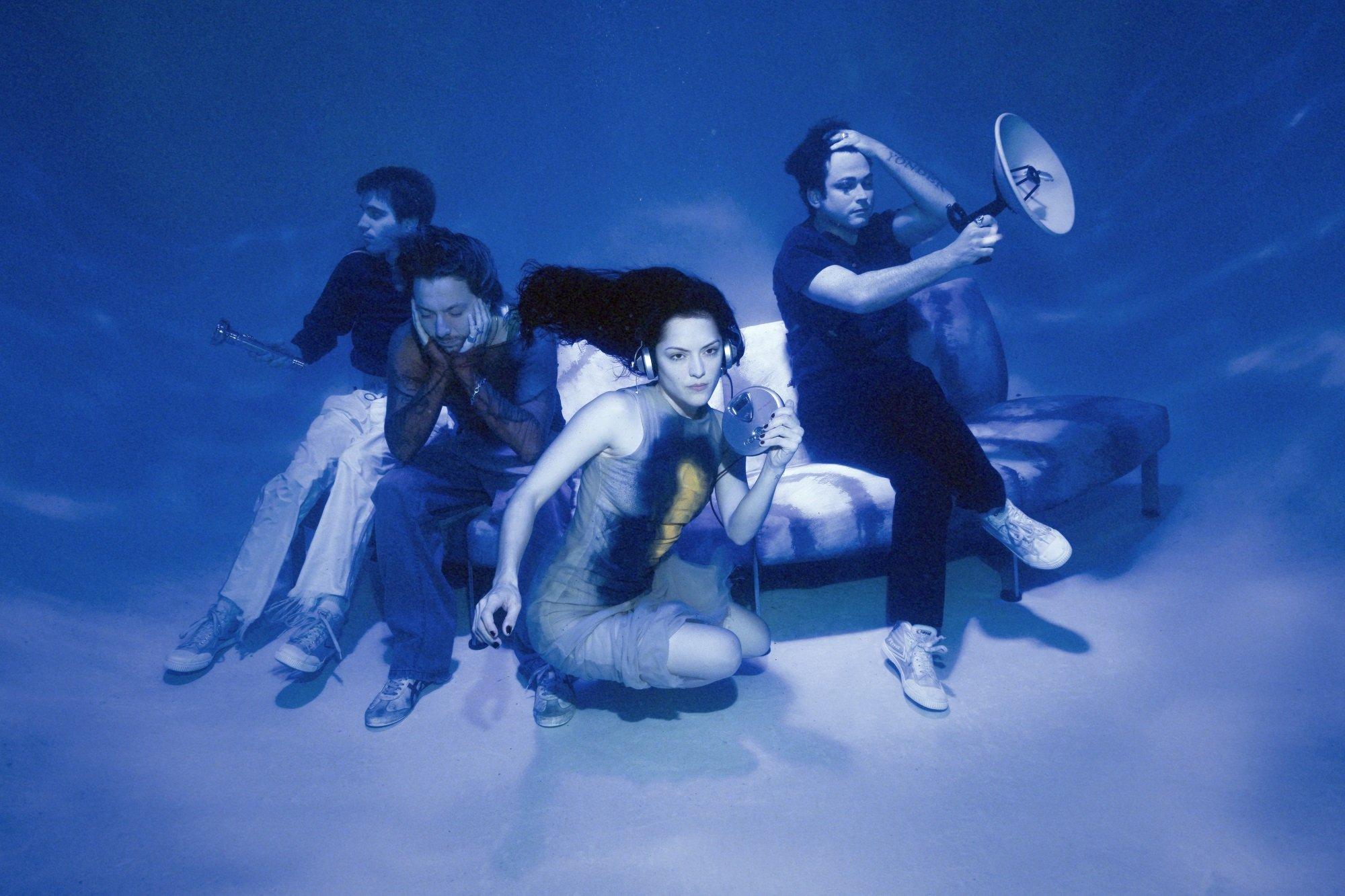
Photo: Bethany Vargas
interview
The Marías Plunge Into The Depths On 'Submarine': How The Band Found Courage In Collective Pain
Following a major breakup, group therapy and finding solace in film, the Marías are back with a new album of ethereal pop. "It is my perspective on heartbreak, which can be interpreted in so many different ways," says singer/songwriter María Zardoya.
The Marías had undergone a seismic change by the time they started working on Submarine, their second full-length album. Lead singer and songwriter María Zardoya and drummer and producer Josh Conway had ended their eight-year relationship, uprooting their lives and creative partnership in the process.
Instead of being subsumed by the breakup's emotional waters, the L.A.-based pop band took a six month hiatus. They traveled, tended to their loved ones, and considered the next steps for their careers.
Luckily for their large, devoted audience, Zardoya and Conway decided that their breakup wasn’t an obstacle for the Marías to keep going. "Even though you lose yourself in every heartbreak, I think that is an opportunity to gain even more," Zardoya tells GRAMMY.com.
What followed was a fruitful period at their Los Angeles studio, where Zardoya, Conway, keyboardist Edward James, and guitarist Jesse Perlman reassessed their dynamics. They spent long days working on new songs, pushing through with the help of band and individual therapy. The end result is Submarine, a record that tells a story of loneliness, grief, and transformation.
Submarine is a vibrant listening experience, and reflective of the Marías' love of film and well-curated aesthetics. The album is full of expansive arrangements, ranging from dream pop to rock and jazz. Water-like sounds, R&B harmonies, and soft electronic textures add to Zardoya’s ethereal vocals which, complimented by shimmery guitars and subtle percussion, create a contrasting narrative of desolation and romance.
The group’s musical union, and their distinctive sound, is palpable through Submarine. Tight-knit danceable songs, cheeky vocals, and Zardoya’s immaculate style — which seeps through lyrics about drama, paranoia, and even the claustrophobic feeling behind modern technology — make for a strong release, where love and hope are still within reach.
Ahead of their world tour, which kicks off in Mexico on June 11, and in celebration of Submarine, the Marías spoke with GRAMMY.com about overcoming the band’s potential dissolution, taking inspiration from arthouse cinema, and the emotional process of creating their third album.
Looking at your docuseries for 'Submarine,' something María said caught my attention. "There were a few moments after ‘Cinema’ that I thought the band was over." Can you elaborate on that?
María Zardoya: There was a point where I did think that the band was over. I think we were all in a tumultuous place. I didn't know if I still wanted to make music, and I didn't know if The Marías would continue. But thankfully, it did.
We went to therapy as a band; Josh and I went to therapy together; and we all started doing our [own] therapy. Through all of that work that we did, we realized that the music is so important. We have so much to say, and what we have to say is important. Let's continue.
In the end, that period only made us stronger. Today our relationship with each other, and my relationship with Josh and the guys individually are stronger than ever. So I'm glad that we went through what we did.
Can each of you, individually, tell me why the band is important to you?
Josh Conway: Music has been important to me my entire life. That's something that I kind of realized over the last couple of years; music is more important to me than anything else. I'll do whatever it takes to continue making music and making music with people that I love, especially. It's special to be doing this with all my best friends.
Edward James: I've always wanted to be in a band. I love the concept of a group of people who are one for all and all for one, and who get to experience everything together. It's a unique interpersonal relationship dynamic that you don't get really with anyone else in your life. So apart from the existential pursuit of music that we're all drawn to, the camaraderie is so important, because of how difficult the dynamic is to maintain and to continue. I think doing it with the band sort of translates to every other sort of relationship you can have in your life.
Jesse Perlman: Whether if we took one year off, or five years off, we would still, at some point, get back together and be like, "Okay, we're ready." I think we're so close, and we miss touring so much. This whole rollout and recording process that we did in the last year has just been so open — and I think we're just so ready to take this on the road.
Zardoya: It's important to express myself, and to get out the feelings that are inside. That's why music is so important to me, and this band is so important to me. I've gotten a lot of DMs and letters in the mail from fans saying that our music has helped them through different periods in their lives. That they feel seen, and represented — with them being Latin and me being Latin — and how inspired they are. So music is important for me individually, but it's also important for me to keep doing this for the people who get something out of our music.
Jesse, you mentioned missing touring. What is everyone's favorite part of touring? A lot of musicians have detailed how touring can be grueling and financially unviable.
Perlman: We're coming up on almost eight years of being in this band, and I feel like we've done it all. We've gone around the country so many times now, and that was special. But now we're at a level where we finally have a whole crew and we can play these bigger, beautiful theaters.
We can make a cool, eclectic setlist with a mix of all the songs [from Submarine, Cinema and EPs Superclean Vol. I and II] — and that's my favorite part, putting together a fun set. Surprising the fans with interludes and jams and a big production with cool lights and stuff. That’s so fun for me.
James: My favorite part of touring is just that feeling of nervousness before a show. Then sort of going over the hilltop as soon as we play the first notes of the first song. Then riding that feeling during and after the show.
Conway: All of the trouble of getting to and from the venue, carrying gear, and the off days in a random city — all of that can be pretty grueling and taxing. But when you can play these songs, in front of fans that love you, and love your music and sing along. You can see people experiencing joy. It makes it all worth it, 99 percent of the time.
Going back to the process of making 'Submarine,' María, you mentioned a transition between thinking the band was over to making music again. Can you tell us more about that moment?
Zardoya: I think we took the intensity of Josh [Conway] and me transitioning from a romantic relationship to a platonic relationship and put it into the music. [We] also used it to work on ourselves and grow individually. I'm grateful for everything that we've been through, the intense moments and the hard moments because we just put it into music.
How did you start and arrive at the theme of the album? From having an "aha moment" to completing the project?
Zardoya: The aha moment came when the album title came into my head. I shared it with the guys and they were super into it. That's when the album’s world started to be built. When we started hearing how it could all come together, that’s when Submarine— the title and the concept — was born. I saw so much symbolism in using water to represent this going inward, this introspective journey that we were all on. And then using these underwater sounds in the tracks.
Conway: There was also a moment when we had been working on the album for a couple of months. We had gotten to a good place after writing, and then María and I listened to the first six songs that are on the album now. That was the first time where María and I were able to conceptualize what it's gonna sound like when you listen to the whole album. We were dancing in the studio and that was just a really exciting moment. We both knew we just heard the beginning of the album and we loved it.
You did a great track-by-track breakdown of your 2021 album, 'Cinema.' Can you talk about the tracks in 'Submarine?'
Zardoya: The opening track, "Ride," is almost like an introduction to Submarine. Where Cinema started with these beautiful string arrangements, we kind of wanted the first track of Submarine to be a little bit more hard-hitting and in your face. Almost like it's slapping you into this world.
Perlman: The intro to Cinema was dramatic. Then when you listen to "Ride" opening Submarine, it's more fun and light-hearted.
Conway: Then "Hamptons." María and I were cycling through old beats, and that one caught our attention. We just started writing to it. We pretty much had the whole thing written on the first day. It was a lot of fun.
Zardoya: I think thematically I wrote these lyrics after visiting the Hamptons. I wanted to hate the Hamptons because it's like this bougie place in New York, but I honestly loved it. It was beautiful. The nature was so pretty.
What about "Echo" and "Real Life"?
Zardoya: "Echo" is about being pulled into two different directions and living in that ambivalence, which makes you feel paralyzed. This was probably one of the hardest songs to write on Submarine — both thematically and then also piecing it together. We had a part written and it wasn't quite doing it. Then finally, one afternoon the chorus came out of nowhere. And then I think we were like "Okay, here we go. We've got the song."
"Real Life," lyrically, is about the culture that we have with our phones, and everything being virtual. It’s about wanting to have that one-on-one human connection in real life. Songwriting-wise, it came out of a jam that we were all doing together in the Dominican Republic. We were there for a show. We started jamming and it all — the melody, lyrics, and everything — came out of nowhere.
James: It was pretty much written in 30 minutes. It was crazy fast.
Perlman: Whenever we play it, it's perfect every time. It's always the first one we soundcheck with. It's one of my favorites on the album.
In a YouTube video, you said that 'Submarine' is not necessarily about your heartbreak. Can you expand on that?
Zardoya: Words in songs live subconsciously, within me. These songs could be about us, they could be about something that happened 10 years ago, they don't have to be about anything in particular. They are subconscious thoughts that come up to create a song. It is my perspective on heartbreak, which can be interpreted in so many different ways.
Have any films or music helped inspire or complement the aesthetic of 'Submarine?'
Zardoya: I've always been inspired by visuals when it comes to what we do and how it merges with the music. Film was like my first love. One of the movies that inspired this album, 'Three Colors: Blue' by Krzysztof Kieślowskii, from the 'Three Colours' trilogy. Aside from the color blue, and how we've moved from red to blue in this album, in that movie, the main character loses her family at the beginning and she has to figure herself out and go on this introspective journey to find herself.
That's kind of how I felt with this album. In the beginning, I found myself in this place of solitude and loneliness. Then throughout the album, just like Julie in the movie, I started to find myself and started to find courage in the pain that I had been feeling.
Other movies that I rewatched during the making of this album were 'Lost In Translation' and 'Her.' 'Lost In Translation' is also about solitude, and I found that perspective inspiring the visuals and the record as well. Then on 'Her', technology and loneliness kind of go hand in hand. All of these relationships that we have with technology and with our phones were kind of interspersed throughout the album.
Later I discovered that these two films were created in response to the end of a relationship [between film director Sofia Coppola and filmmaker Spike Jonze]. So I loved that as well because you create this art in response to something real and something tangible.
In making 'Submarine,' did you learn something or find a silver lining?
Conway: You don't have to be in a romantic relationship to love someone.
Zardoya: Even though you lose yourself in every heartbreak and every loss, I think that you have an opportunity to gain even more.
Conway: When the album ends, there is a glimmer of hope. In my mind, it feels like that you'll be getting out of the submarine pretty soon.
Wallows Talk New Album 'Model,' "Entering Uncharted Territory" With World Tour & That Unexpected Sabrina Carpenter Cover
